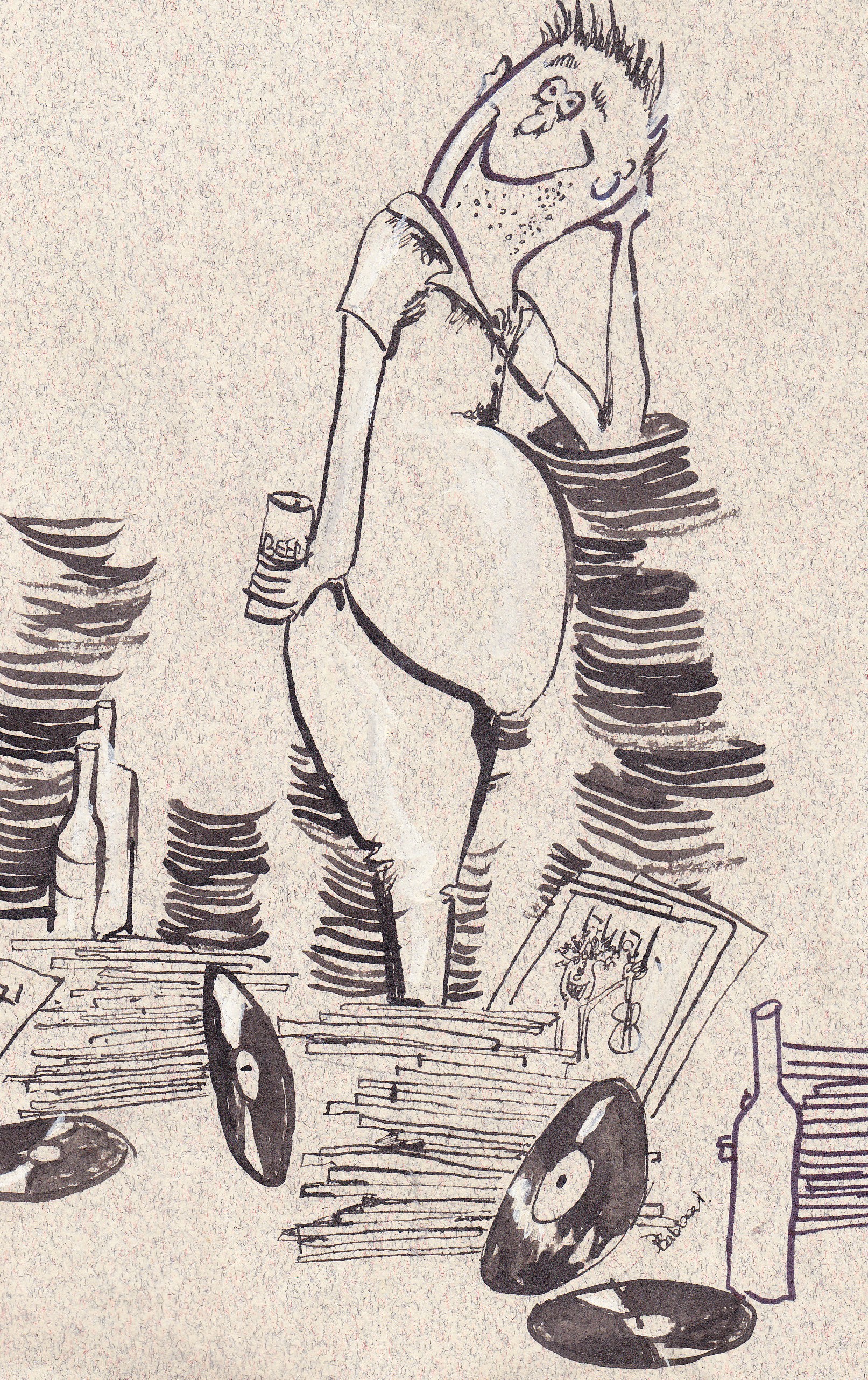British Music Before
Beatlemania!
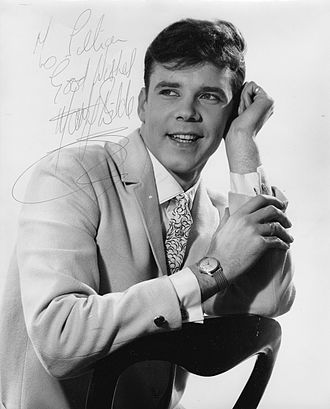 Marty Wilde, looking distinctly Amerian in the early English scene. Marty Wilde, looking distinctly Amerian in the early English scene. |
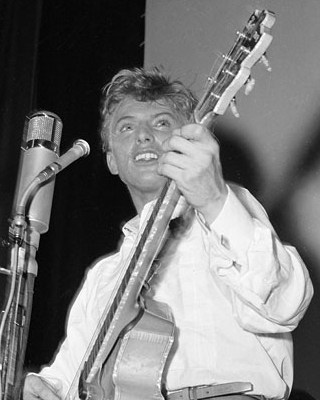 Tommy Steele, a very successful English artist before the Beatles. Tommy Steele, a very successful English artist before the Beatles. |
British Music Before Beatlemania.
Who Was Contributing?
British Music Before Beatlemania. It's hard these days to remember music before the Beatles. I remember it was "Rock Around the Clock" by Bill Haley and the Comets that got me going into music. The drummer playing the little fill in the end got me hooked, and I was in, and have been ever since.
So, who the artists playing British Music Before Beatlemania?
John Lennon once said, “before Cliff Richard there was nothing worth listening to in England”
But, there was much more to it than that, there were some great artists providing music before Beatle Mania!
Before Cliff, and then The Beatles, Britain's music scene was a vibrant and dynamic space, significantly molded by an eclectic mix of homegrown talent and American influence. While the Beatles irrevocably shifted the zeitgeist and took "British Music" to unprecedented heights, the precedent was established in an exhilarating era of "Britain Before Beatlemania".
One of the primary forces molding British music before Beatle mania was the
influence of American music. Directly imported into Britain via Transatlantic
radio broadcasts, soldiers stationed in the UK during WWII, and through the
distribution of vinyl records coming into British ports from Trans- Atlantic sailors
genres like jazz, blues, and rock 'n' roll found eager audience across the
pond.
American Rock 'n' Roll, with its contagious energy and
rebellious spirit, took the British youth by storm in the 1950s. Figures like
Elvis Presley and Buddy Holly were seen as symbols of a new and vibrant youth
culture and this American influence triggered a cultural revolution in Britain,
giving birth to a unique British Rock 'n' Roll scene.
This cultural revolution wasn't just musical - it was reflected in fashion too. Inspired by American Rock 'n' Roll, the Teddy Boys emerged as a subculture in the UK. Their flamboyant style formed a stark contrast to the austerity of post-war Britain and came to represent the new rebellious spirit of the times, just as Rock 'n' Roll did in the musical realm.
While the Teddy Boys were closely associated with the American Rock 'n' Roll, their soundtrack was not entirely imported. The mid to late 50's saw the rise of British Rock 'n' Roll - a synthesis of American Rock 'n' Roll rhythms and British sensibilities. This genre became a significant part of British pop music, setting the stage for a musical revolution in the coming decade.
One of the key musicians contributing to British music before Beatlemania was Cliff Richard, often credited as Britain's answer to Elvis Presley. With his backing group The Shadows, Richard not only topped the British charts but also made significant inroads into the American market – a rare feat for UK artists at that time. His success set a precedent that the mentioned Beatles and other British Invasion bands would later follow.
But even before Cliff, singers like Billy Fury, Marty Wilde, the great Tommy Steele and Adam Faith emerged as notable figures in British Music before Beatlemania. Each brought their distinctive style to the genre and kept British pop music charts buzzing with their hits. Their music translated the raw energy and unfiltered emotion of the genre, while remaining firmly rooted in British culture. Great contributors to British Music before Beatlemania.
 Billy Fury, one of the most successful of the pre Beatles singers. He spent 332 weeks in the UK Charts.
Billy Fury, one of the most successful of the pre Beatles singers. He spent 332 weeks in the UK Charts.Britain Gets On Board The Rock Scene
In parallel to the rise of British Rock 'n' Roll, the traditional pop and big band music continued to maintain a strong presence. The British crooners, frontmen and band leaders such as Mantovani, Ronnie Hilton, and Frankie Vaughan held sway over the British charts, proving that the taste for traditional pop music was still impactful.
The influence of American music, particularly rhythm and blues, paved the way for another major music movement - the emergence of skiffle. Artists like Lonnie Donegan gained popularity, presenting a more accessible, makeshift music style that led many British teenagers to pick up the guitar for the first time. Among those inspired by this trend were future Beatles John Lennon, Paul McCartney, and George Harrison.
Skiffle acts often performed in the burgeoning coffee bar scene of 1950s Britain. These establishments became the breeding ground for many aspiring musicians such as Lonnie Donegan who would later play pivotal roles in the British music scene. The rock, pop, and Skiffle Musicplayed in these venues became the soundtrack of Britain's youth culture.
Outside the coffee bars, another hub of popular music pre-Beatles was the British dance hall scene. Attendees could enjoy live performances from big bands and orchestras, carving out an important place for jazz and swing music in Britain's musical landscape.
The emergence and influence of television also played a significant role in shaping British music before Beatlemania.. Shows such as Sunday Night at The London Palladium and Oh Boy! brought the nation's musical talent right into the living rooms of the British populace, expanding the reach of British pop music.
The lure of America was irresistible to some British musicians. One of the prevailing trends before The Beatles was for British artists to seek fame across the Atlantic. Acts like the Tornados with their instrumental "Telstar" managed to break into the American charts, the first No. 1 on the American charts by an English act, paving the way for the so-called "British Invasion" a few years down the line.
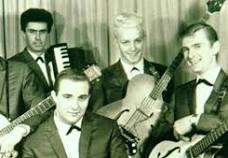 The Tornados record "Telstar" was a UK hit, but also hit No.1 in the USA, the very first British act to achieve this.
The Tornados record "Telstar" was a UK hit, but also hit No.1 in the USA, the very first British act to achieve this.Despite the strong American influence, there was a consistently British element to the sound of this era. Artists from different genres molded American styles into a distinctly British identity, creating a unique soundscape that would shape a homegrown "British pop music" scene.
Consider bands like Cliff Richard and The Shadows, who took the American rock 'n' roll template and added their own British flavor. Their instrumental sound, led by the sharp, echoing guitar of Hank Marvin, was certainly one of the defining sounds in British pop music at that time.
As the 1950s drew to a close and the 1960s began, British music found itself at a crossroads. It was a vibrant and transformative era, teeming with musical experimentation. The local talent was becoming bolder, carving out their own paths rather than merely following American trends.
It was within this fertile environment that The Beatles, like many other bands in Liverpool and beyond, formulated their own sound. They crafted a new and distinct style that was authentically British, yet globally appealing. Their imminent rise to fame would build upon the hybrid sound established by their predecessors.
Reflecting on "Britain Before Beatlemania" offers us a new perspective on British music. By the time Beatlemania took over, the country already had an elaborate music scene. This insight into the roots and influences of the British artists who ruled the charts in the '50s and '60s, invites us to delve deeper into the vibrant world of vintage British pop music, providing an enriching journey through the sounds and sentiments of a fascinating musical era.
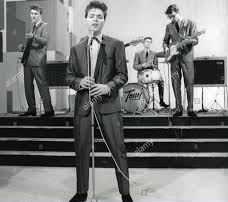
Enjoy this site? Share with friends!
